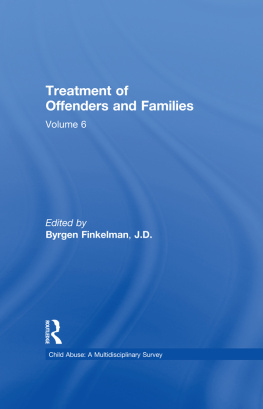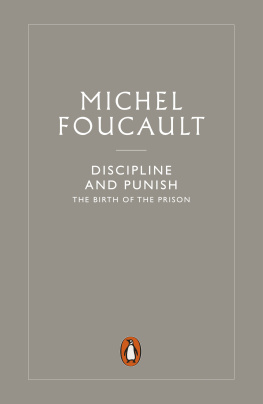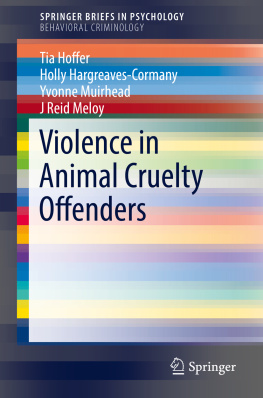
Sex Offenders: Punish, Help, Change or Control?
Sex offending, and in particular child sex offending, is a complex area for policy makers, theorists and practitioners. A focus on punishment has reinforced sex offending as a problem that is essentially other to society and discourages engagement with the real scale and scope of sexual offending in the UK. This book looks at the growth of work with sex offenders, questioning assumptions about the range and types of such offenders and what effective responses to these might be.
Divided into four sections, this book sets out the growth of a broad legislative context and the emergence of child sexual offenders in criminal justice policy and practice. It goes on to consider a range of offences and victim typologies, arguing that work with offenders and victims is complex and can provide a rich source of theoretical and practical knowledge that should be utilised more fully by both policy makers and practitioners. It includes work on female sex offenders, electronic monitoring and animal abuse, as well as exploring interventions with sex offenders in three different contexts: prisons, communities and hostels.
Bringing together academic, practice and policy experts, the book argues that a clear but complex theoretical and policy approach is required if the risk of re-offending and further victimisation is to be reduced. Ultimately, this book questions whether it makes sense to locate responsibility for responding to sexual offending solely within the criminal justice domain.
Jo Brayford is currently programme leader for Criminology and Criminal Justice and Youth Justice at the University of Wales, Newport. Prior to this she was Research Officer (Effective Practice) for the Gwent Probation Service. Her research interests are in crime, community and custodial penalties, social problems and female sexual abuse.
Francis Cowe is deputy director of UHOVI (www.uhovi.ac.uk) and founder of the Newport Centre for Criminal and Community Justice. He has taught extensively on probation, criminal and community justice and social sciences, and he has previously worked as a probation officer, senior lecturer, principal lecturer, associate dean and director of planning and development.
John Deering is a senior lecturer at the University of Wales, Newport. He has previously worked as a social worker, probation officer and senior practitioner.
All three are co-editors of What Else Works? Creative work with offenders (Willan, 2010).
Routledge Frontiers of Criminal Justice
| Sex Offenders: Punish, Help, Change or Control?
Theory, policy and practice explored
Edited by Jo Brayford, Francis Cowe and John Deering |
Sex Offenders: Punish, Help, Change or Control?
Theory, policy and practice explored
Edited by Jo Brayford,
Francis Cowe and John Deering
First published 2012
by Routledge
2 Park Square, Milton Park, Abingdon, Oxon OX14 4RN
Simultaneously published in the USA and Canada
by Routledge
711 Third Avenue, New York, NY 10017
Routledge is an imprint of the Taylor & Francis Group, an informa business
2012 Jo Brayford, Francis Cowe and John Deering; individual chapters, the contributors
All rights reserved. No part of this book may be reprinted or reproduced or utilised in any form or by any electronic, mechanical, or other means, now known or hereafter invented, including photocopying and recording, or in any information storage or retrieval system, without permission in writing from the publishers.
Trademark notice : Product or corporate names may be trademarks or registered trademarks, and are used only for identification and explanation without intent to infringe.
British Library Cataloguing in Publication Data
A catalogue record for this book is available from the British Library
Library of Congress Cataloging-in-Publication Data
Sex offenders: punish, help, change or control?: theory, policy and
practice explored/edited by Jo Brayford, Francis Cowe, John Deering.
p. cm. (Routledge frontiers of criminal justice)
Includes bibliographical references and index.
1. Sex offenders. 2. Sex offendersRehabilitation. 3. Sex crimes.
I. Brayford, Jo. II. Cowe, Francis. III. Deering, John, 1956 Mar. 26
HQ71.S3964 2012
364.153dc23
2011049562
ISBN: 978-0-415-67698-4 (hbk)
ISBN: 978-0-203-11473-5 (ebk)
Typeset in Times New Roman by
Florence Production Ltd, Stoodleigh, Devon, UK
Contents
JO BRAYFORD, FRANCIS COWE AND JOHN DEERING |
|
NIGEL STONE |
MAURICE VANSTONE |
JO BRAYFORD AND JOHN DEERING |
|
KIRSTY HUDSON |
JO BRAYFORD AND SUSAN ROBERTS |
MICHELLE CULWICK |
NADIA WAGER |
JENNY MAHER AND HARRIET PIERPOINT |
MAJID YAR |
|
FRANCIS COWE AND CARLA REEVES |
CERYS MILES AND KATE SAWARD |
ANDREW BATES AND CHRIS WILSON |
MIKE NELLIS |
|
HAZEL KEMSHALL AND JASON WOOD |
PAMELA UGWUDIKE |
CHARLOTTE KNIGHT |
JO BRAYFORD, FRANCIS COWE AND JOHN DEERING |
Illustrations
Figures
Tables
Boxes
Foreword
That the editors of a book on the subject of sex offending should have invited a foreword by a manager of volunteer-based community service may be of some significance in itself. Besides the request being a great honour, it also acknowledges the recent shifts in thinking in this field that render a brief introductory contribution from the community perspective timely and appropriate.
One key theme in this wide-ranging book is that a bridge is increasingly necessary between what can be done by dedicated criminal justice interventions and what might be available through greater community support and engagement subsequently. Theoretical and principled efforts, it is proposed, must be made to link what hitherto have all too often been disconnected worlds. It is a theme warmly welcomed by this particular manager. The four options of the books title, punish, help, change or control, perhaps together have become blurred and coalesced as the headlights that have often blinded society in its ability to get beyond the very real horror and repugnance of the abuses inflicted to a more measured, socially just and effective response to the perpetrators and, importantly, find an approach that critically is not just the responsibility of treatment practitioners.
Fortuitously in recent years, paralleling the shifts in thinking represented in the good lives model (Ward and Stewart 2003), there has been an encouraging appreciation that communities can indeed be positively engaged in the reintegration of those who present a known risk of sexual re-offending. It is possible to see an alternative form of community protection taking shape in which a growing body of local people are now choosing to engage, in marked contrast to the vigilantism enflamed by some sections of the media, with all its counter-productive heat. While one swallow does not make a summer, the closing down in 2011 of the News of the World newspaper, which perhaps plumbed new depths for itself and certain tabloid colleagues in its naming and shaming campaign in 2000 of those with convictions for sex offences, can be viewed at least as some nemesis for the more extreme forms of redtop journalism. The demise of this newspaper was not, of course, directly related to its coverage of sex offenders returning to the community, and may hardly represent the dawn of a lasting public disapproval at the perceived moral bankruptcy in some of the journalistic techniques brought to light. It may not be too fanciful, however, to locate these events in a broader context in which, as a consequence of new technologies, people have increasing access to a much wider range of views and data than in past years, when such papers could claim to be the sole public voice for matters of concern and necessary outrage.








